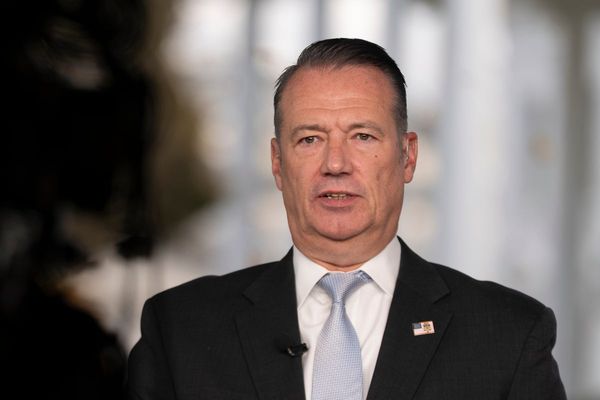
Cancer patients face life-threatening hospital delays and the prospect of more gruelling treatment as a result of NHS staff shortages, senior radiologists have warned.
A poll of all 60 directors of the UK’s cancer centres by the Royal College of Radiologists (RCR) found staff shortages at 97% of the centres were leading to longer waiting times and delays in treatment.
The poll showed 88% were concerned about shortages affecting the quality of care. The RCR pointed out that for every four-week delay to treatment, the risk of death increased by about 10%.
Half of those surveyed reported “frequent delays” every month or most months in patients starting radiotherapy, while this was happening at 22% of centres most weeks or every week.
The RCR warned that staff shortages meant people were waiting longer than necessary to start chemotherapy or radiotherapy, while some doctors were having to make “difficult decisions” about who to prioritise and were sending patients to other hospitals.
According to one head of service, prostate radiotherapy patients in their area were facing a three-month minimum wait to receive treatment, while breast cancer patients had a seven- to eight-week wait.
Staff shortages also meant costly medical devices, including linear accelerator machines for radiation, had to be switched off owing to the lack of people able to operate them, the RCR said.
Its report states that the UK has a 15% shortfall of clinical oncologists but by 2027 this figure will rise to 25%.
Over the next five years, one in five clinical oncologists are expected to retire, and more than half (54%) of current clinical oncology vacancies have been open for more than a year, it adds.
Meanwhile, the proportion of more expensive locum staff being used has grown from 4% to 8% in the past two years.
The RCR published two reports on Thursday, one looking specifically at cancer care and the other at the clinical radiology workforce.
In the second report, 80% of directors surveyed said they believed a shortage in the number of interventional radiology consultants was causing patients to receive more invasive treatment.
In 97% of centres, patient treatment had been delayed because of staff shortages over the past year, while in about half of centres, shortages were causing delays almost every month, the RCR audit found.
About 90% of those questioned thought workforce shortages would affect patient safety and only one in four said they had enough staff to deliver safe and effective care.
The report says 52% of trusts could provide adequate 24/7 interventional radiology services.
The RCR warned that across the UK there were 4,745 whole-time-equivalent radiologists working in the NHS and the consultant workforce had a 29% shortfall. It said there was a “ticking timebomb”, adding: “Without action, there will be a 40% shortfall of radiologists by 2027.”
Most consultants who left in 2022 were under 60, with many experiencing burnout, according to the RCR. It said new community diagnostic centres set up by the NHS had increased the workload on already stretched staff.
Dr Katharine Halliday, the RCR president, said: “There are simply not enough doctors to safely treat the volume of patients needed, and this will only worsen as demand rises and more doctors leave the NHS.
“Action from the government is now critical. We must train more doctors, while doing more to retain the ones we have. There is no luxury of time: doctors are stretched, stressed, and scared for their patients.”
Michelle Mitchell, the chief executive of Cancer Research UK, said: “Due to underfunding and poor planning from governments across the UK, there isn’t enough staff or equipment to diagnose and treat cancer in a timely way.
“We urge political leaders in all UK nations to act now to address chronic staffing issues and unacceptable waiting times across the NHS.”
She said without long-term and strategic planning matched with sufficient investment, it would continue to be difficult for people to benefit quickly from life-saving cancer checks and treatment.
Minesh Patel, the head of policy at Macmillan Cancer Support, said: “Macmillan and the Royal College of Radiologists have been sounding the alarm about the devastating impact of staffing shortages on delays to diagnosis and treatment for years but the crisis continues to be brushed aside by governments.
“At the heart of this crisis is a failure to recruit and retain enough specialist cancer professionals.”
Downing Street said it was bringing in measures to speed up cancer care. A spokesperson said: “More than 260,000 patients were seen following an urgent GP referral in March 2023, which is the highest figure since data collection began. But we know there’s more to do, which is why we opened 108 community diagnostic centres and we’ve delivered over 3.9m additional tests, including for cancer.”
A Department of Health and Social Care spokesperson said: “There are more doctors, nurses and staff working in the NHS than ever before, with 50% more specialist cancer doctors treating patients now compared to 2010.
“The NHS is also seeing, treating and saving record numbers of people with cancer but we know there is more to do. That is why we are seeking views on our major conditions strategy and the NHS will soon be publishing a long-term workforce plan setting out how it will recruit and retain even more staff.”







